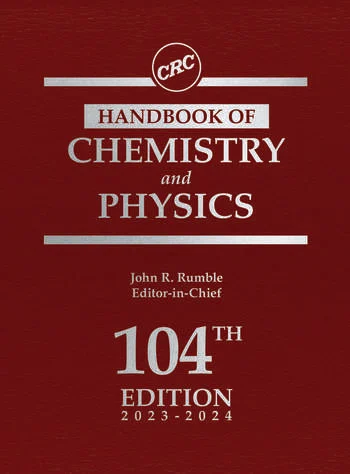Tertiary sources compile, summarize, index, or help identify scholarly sources on a topic. They are useful for background research or to get an overview of a topic before delving into secondary or primary sources. Common tertiary sources for Chemical and Biomolecular Engineering include handbooks and encyclopedias.
From this page you can access:
A dictionary or encyclopedia can be a useful starting point if you are unfamiliar with a concept. The resources can give you the terminology that might be useful when searching. Some dictionaries give very brief explanations of key words; others give a paragraph. An encyclopedia focused on a particular subject is often arranged alphabetically, with several pages of information and background, plus lists of resources for more information. They are written by experts in the field.
In addition, handbooks are very useful in research. They often summarize important concepts, and are used by students and practitioners alike.
Perry's Handbook for Chemical Engineers (within AccessEngineering) is an excellent starting point for key concepts you might be unfamiliar with. Kirk-Othmer Encyclopedia of Chemical Technology has chapters on many topics - consider using this after starting with Perry's.
 Perry's Chemical Engineers' Handbook, 9th Edition
by
Don W. Green; Marylee Z. Southard
Perry's Chemical Engineers' Handbook, 9th Edition
by
Don W. Green; Marylee Z. Southard
 Kirk-Othmer Encyclopedia of Chemical Technology
Kirk-Othmer Encyclopedia of Chemical Technology
 Ullmann's Encyclopedia of Industrial Chemistry
Ullmann's Encyclopedia of Industrial Chemistry
 CRC Handbook of Chemistry and Physics
CRC Handbook of Chemistry and Physics
